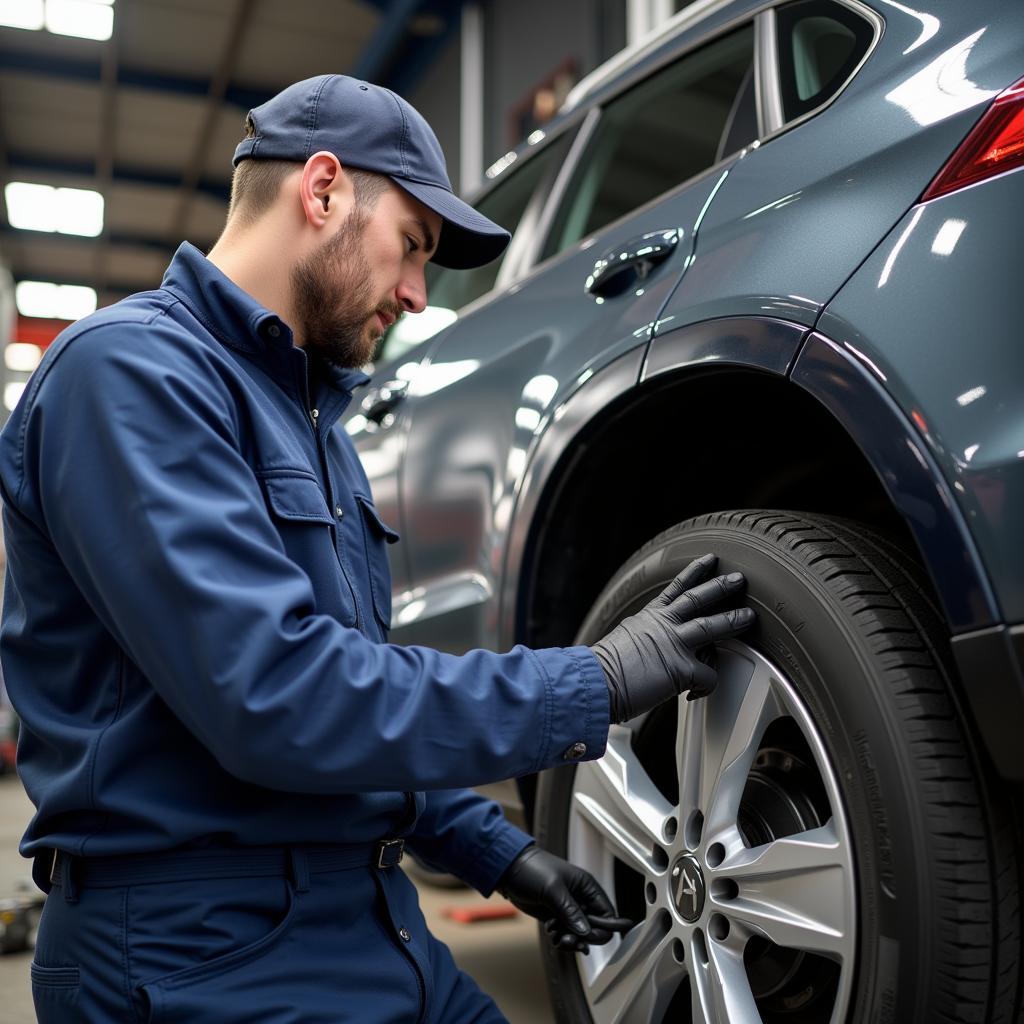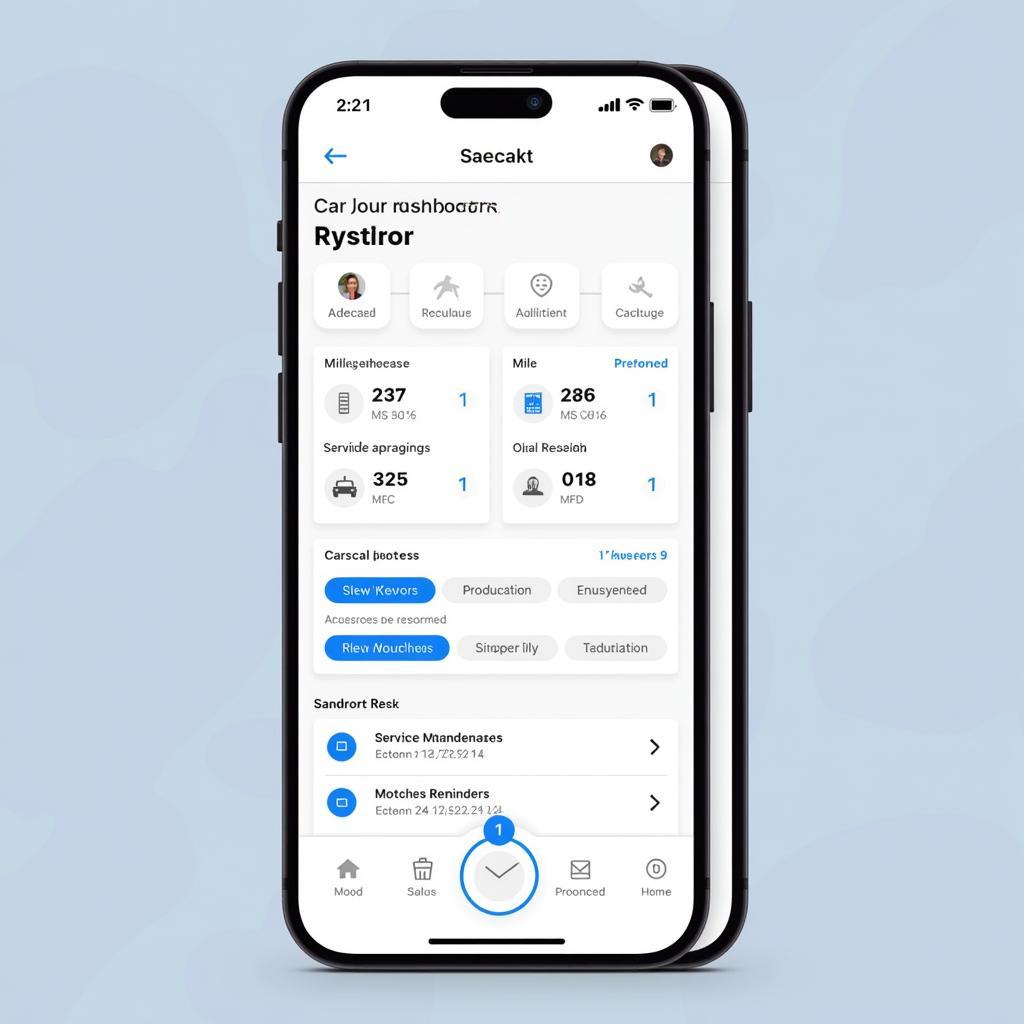Overheating is a common car problem that can cause significant damage if not addressed promptly. Diagnosing Car Overheating Problems early is crucial to prevent costly repairs. This article will guide you through the common causes of overheating and provide step-by-step instructions on how to diagnose the issue.
Understanding Your Car’s Cooling System
Before diving into diagnosing car overheating problems, it’s essential to understand how your car’s cooling system works. The system circulates coolant through the engine to absorb heat and then dissipates that heat through the radiator. Key components include the radiator, water pump, thermostat, hoses, and coolant. A malfunction in any of these parts can lead to overheating. If you’re experiencing issues with your car’s thermostat or heater, check out car thermostat heater problems.
Common Causes of Car Overheating
Several issues can lead to overheating. Some common culprits include a low coolant level, a faulty thermostat, a malfunctioning water pump, a clogged radiator, or a leaking cooling system. Identifying the root cause is essential for effective repair.
Low Coolant Level
A low coolant level is often the most straightforward cause of overheating. This can occur due to leaks, evaporation, or simply neglecting to top off the coolant. Regularly checking your coolant level is a crucial preventative measure.
Faulty Thermostat
A stuck-closed thermostat prevents coolant from circulating properly, trapping heat within the engine. This is a relatively simple fix, but ignoring it can lead to severe engine damage. For more information on common thermostat problems, you can visit common car thermostat problems.
Malfunctioning Water Pump
The water pump is responsible for circulating coolant through the engine and radiator. A failing water pump can hinder circulation, leading to overheating.
Clogged Radiator
Debris and sediment can accumulate in the radiator over time, restricting coolant flow and reducing its ability to dissipate heat. Regular radiator flushing is essential for preventing this issue.
Leaking Cooling System
Leaks in hoses, the radiator, or other components can cause a loss of coolant, leading to overheating. Inspecting the cooling system for leaks is a critical part of the diagnostic process. Understanding the symptoms of exhaust problems can also be helpful in your overall diagnosis. You can learn more about them here: symptoms of car exhaust problem.
Diagnosing Car Overheating Problems: A Step-by-Step Guide
- Check the coolant level: Ensure the engine is cool before removing the radiator cap. If the coolant level is low, add more as needed.
- Inspect for leaks: Look for any signs of leaks in the hoses, radiator, or other components.
- Test the thermostat: Remove the thermostat and place it in a pot of boiling water. If it doesn’t open, it’s faulty and needs replacing.
- Check the water pump: Observe the water pump for any signs of leakage or unusual noises.
- Inspect the radiator: Examine the radiator for any blockages or damage.
Expert Insights
“Regular maintenance is key to preventing overheating. Simple checks like monitoring coolant levels and inspecting hoses can save you a lot of trouble down the road.” – John Miller, Automotive Engineer
“Don’t ignore the temperature gauge! If your car starts to overheat, pull over immediately to prevent further damage.” – Sarah Johnson, Certified Mechanic
Conclusion
Diagnosing car overheating problems requires a systematic approach. By understanding the common causes and following the steps outlined above, you can identify the issue and take appropriate action. Regular maintenance and prompt attention to warning signs can prevent costly repairs and ensure the longevity of your engine. For further assistance with electric vehicle issues, refer to this resource on electric cars problems and solutions. If you’re experiencing problems with a Dodge Avenger, this resource might be helpful: dodge avenger car problems. For any further questions or personalized support, feel free to contact us at AutoTipPro. Our phone number is +1 (641) 206-8880 and our office is located at 500 N St Mary’s St, San Antonio, TX 78205, United States.






Leave a Reply